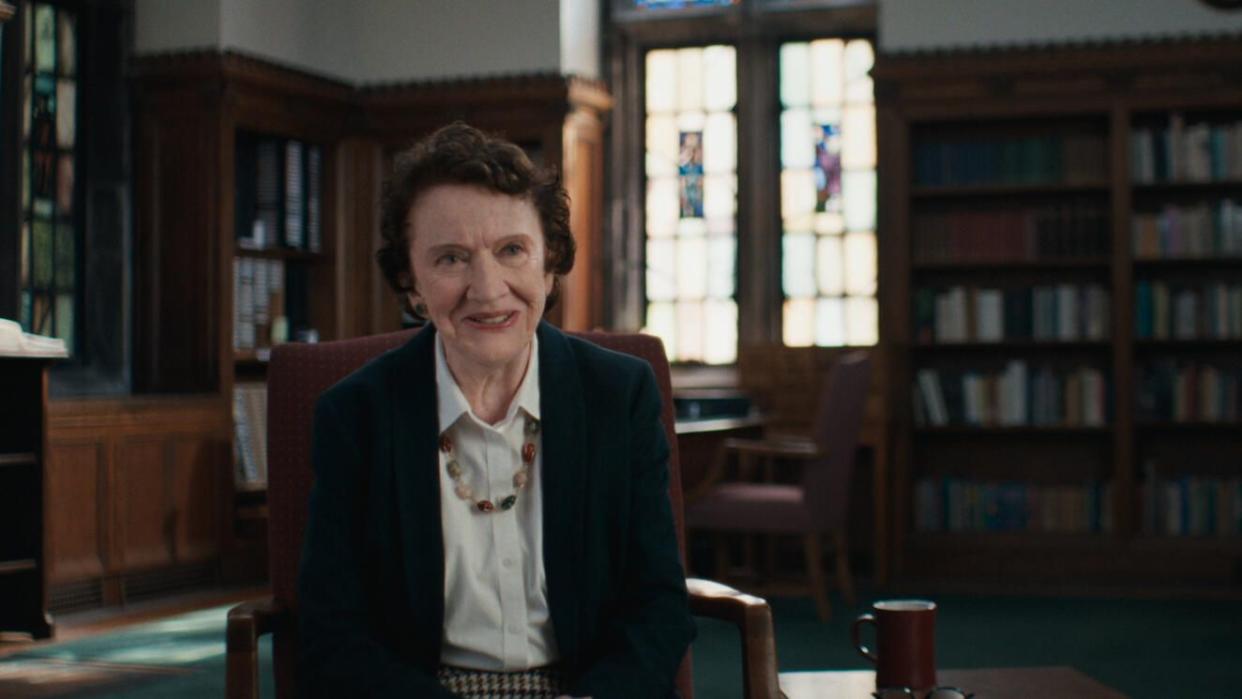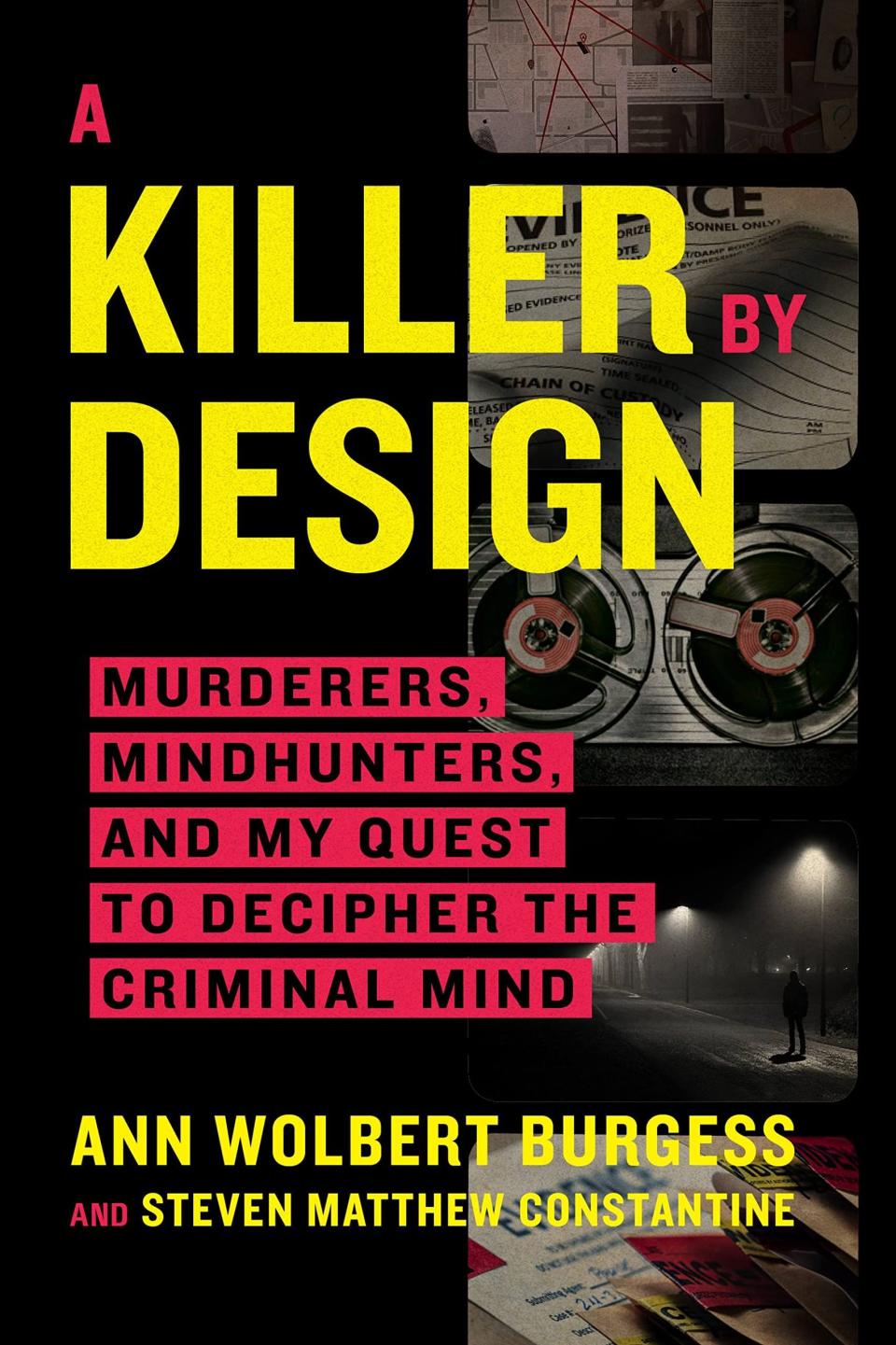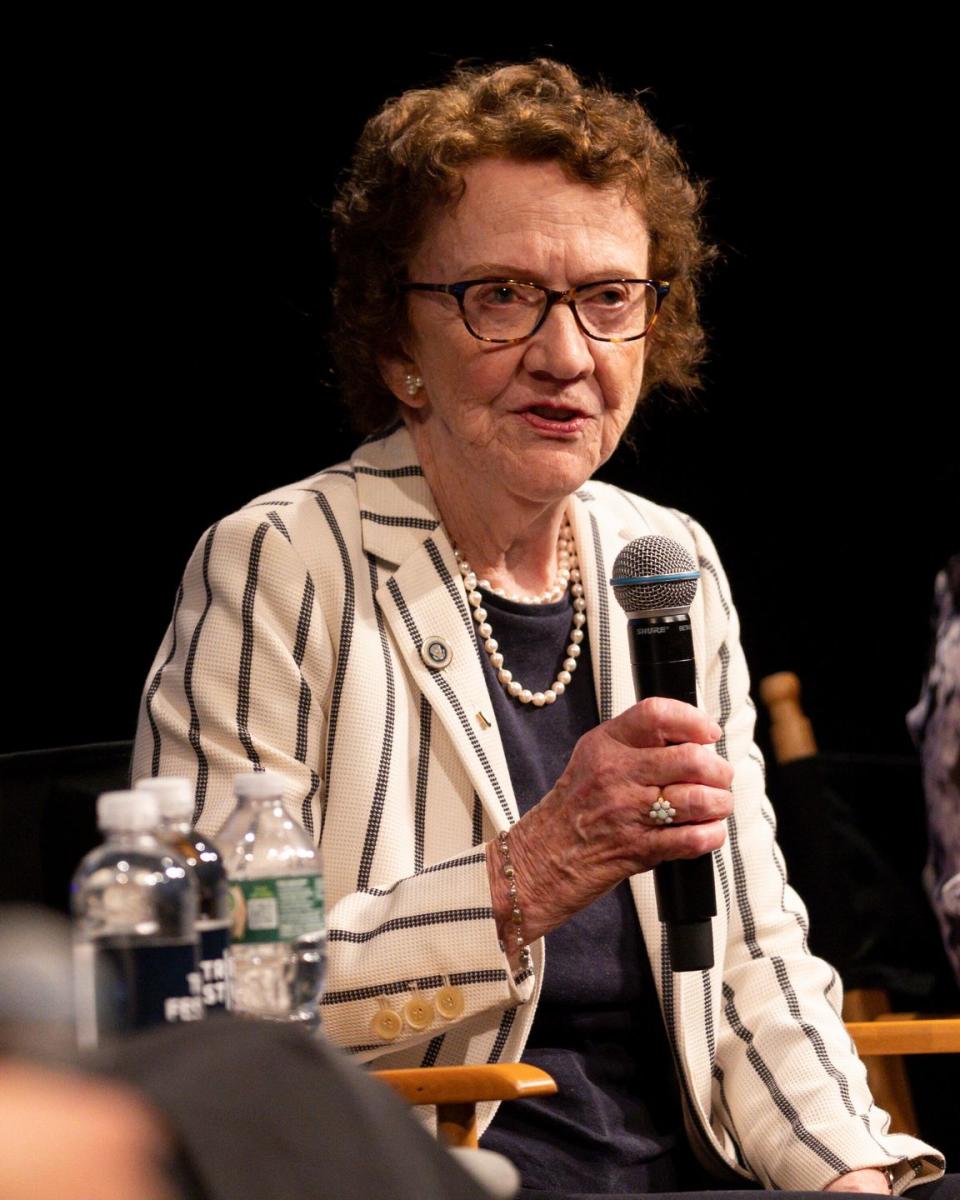Nurse Ann Burgess Studied America’s Most Notorious Killers In Order To Stop Them

- Oops!Something went wrong.Please try again later.
"Hearst Magazines and Yahoo may earn commission or revenue on some items through these links."
Ann Burgess has studied some of the most infamous killers in modern history—such as Edmund Kemper, Ted Bundy, and brothers Erik and Lyle Menendez—trying to understand their motivations and actions. Her rigorous analysis of these and other notorious figures helped her leave an indelible mark on the field of criminology.
Now, a new Hulu documentary titled Mastermind: To Think Like a Killer examines the 87-year-old’s legacy. The three-part series, which premieres on July 11, details her trailblazing work with the FBI’s Behavioral Science Unit in the 1980s that set the foundation for modern psychological profiling of serial killers and other criminals. Decades later, Burgess continues to investigate crimes and inspire the next generation of investigators.
Burgess began her career as a nurse
Born in early October 1936, Burgess was raised in Newton, a suburb of Boston. Although she eventually became accomplished in both fields, Burgess initially pursued a nursing career over teaching. She explained to Boston College Magazine that three of her uncles were doctors. When Burgess was 10 or 11 years old, she began helping one of them deliver babies in the countryside.
Burgess continued to work directly with patients as part of Boston University’s nursing program, performing her clinical work at the psychiatric unit of the Massachusetts Mental Health Center. “I was fascinated by human behavior and the variations that you can have,” she said. “I could not learn enough.”
She and other nurses were often the first medical personnel to treat crime victims. This gave the inquisitive Burgess an up-close look at their behaviors and reactions.
Burgess used her observational prowess to co-author an important 1973 study in the American Journal of Nursing. Working with Lynda Lytle Holmstrom, a sociologist at Boston College, she helped interview 146 survivors of rape from ages 3 to 73. Using their findings, the pair concluded the criminal act was largely about power and control for the perpetrators—a major shift from the “blame-the-victim” mentality that still persisted at the time.
Burgess and Holmstrom also championed crisis counseling and instructed clinicians on how to recognize signs of rape. Soon after the study’s release, the FBI contacted Burgess regarding her expertise.
Burgess set the standard for criminal profiling
According to BC Magazine, in 1978, then-FBI Director William Webster invited Burgess to the FBI Academy, where she taught classes about how to speak with crime victims and catalog the information they provided. This caught the attention of agents John Douglas and Robert Ressler, who wanted to know if Burgess’ methods could be used to understand the minds of criminals—particularly serial killers—instead.
Starting in 1980, with funding from the U.S. Justice Department, the trio began to set the foundation for criminal profiling. They examined the motives and methods of 36 killers and categorized them on a spectrum between organized, people more likely to commit premeditated crimes, and disorganized, marking individuals who commit impulsive and careless violence. The group was also the first to examine the connection between a killer’s crimes and past trauma.
Burgess and team applied their work to the active investigation of the 1983 murders of two young boys in Nebraska. After developing a likely profile of the killer, authorities were able to apprehend John Joseph Joubert IV, who confessed to the murders and was later executed in 1996.
“We’d proven that there was value in understanding the criminal mind… to be able to actually use criminal profiling in an active case to hunt down a killer was the most satisfying reward of all,” Burgess wrote in her 2021 memoir, A Killer by Design: Murderers, Mindhunters, and My Quest to Decipher the Criminal Mind.
Burgess’ work with the FBI served as loose inspiration for actor Anna Torv’s character Wendy Carr in the Netflix thriller series Mindhunter, a dramatization of the founding of the Behavioral Science Unit.

A Killer by Design by Ann Wolbert Burgess
amazon.com
$18.03
She remains a highly influential expert
Burgess, Douglas, and Ressler published two important books based on their research: Sexual Homicide: Patterns and Motives in 1988 and Crime Classification Manual: A Standard System for Investigating and Classifying Violent Crime in 1992.
Even after her work with the FBI, Burgess continued to play a key role in notable criminal cases. In 1993, she served as an expert defense witness in the first trial of Lyle and Erik Menendez, the brothers accused of murdering their parents inside their Beverly Hills home in August 1989. Burgess interviewed Erik for roughly 50 hours as part of her involvement, determining allegations of sexual abuse by their father, José, were valid and an “originating cause” of the killings. The trial resulted in a hung jury, but the brothers were later convicted of first-degree murder in 1996.
Burgess also interviewed Andrea Constand who, in a 2005 civil lawsuit, accused actor and comedian Bill Cosby of sexual assault. A settlement was reached in the case the following year.
Today, Burgess is still investigating

Now 87, Burgess has continued to use her sleuthing skills. She and psychiatric nursing colleagues from Johns Hopkins University and the University of Maryland formed a “Super Sleuth Club,” which meets monthly via Zoom to examine cold cases.
In the meantime, she continues to inspire the next generation of investigators by serving as a professor of Psychiatric Mental Health Nursing at Boston College. She is also a professor emerita at the University of Pennsylvania.
Burgess told The Teacher As... podcast she leads four courses at Boston College: victimology; forensic science; forensic mental health; and Wounded Warriors in Transition, an elective for students to “gain an understanding of military culture, catastrophic injuries, and the journey of Wounded Warriors and their family members.” Her classes examine a number of past and ongoing cases, including the Gilgo Beach and University of Idaho killings, and often incorporate former members of law enforcement and actual victims.
One of Burgess’ current areas of focus is threat assessment to prevent mass casualty events, such as school shootings. “We’re seeing so many of these [shootings] that are going on, and we have to be able to get the red flags, that there are warning signs, and that’s all in social media,” Burgess said. “One way you can, hopefully, try to find out what’s going on is to analyze what they’re writing, because what they write is what they think, and we know that thinking is what drives behavior.”
The new Hulu docuseries, which Burgess served as a consulting producer on, is sure to examine the thorough approach she has used, and continues to use, throughout her career in criminology.
Stream Mastermind Starting July 11
Mastermind: To Think Like a Killer is directed by Abby Fuller and produced by Lewellen Pictures, the production company belonging to actor Dakota Fanning and her Golden Globe-winning sister, Elle Fanning.
In an interview with Boston College, Fuller spoke about the importance of sharing Burgess’ story and influence on criminal personality study. “Dr. Burgess’ story is not just about studying the minds of serial killers. It’s about understanding victims and believing victims. That’s the thread that I saw,” she said. “The series is about her entire career and the many ways she’s influenced and shaped law enforcement and the courts and different systems.”
The three-part Hulu vehicle will stream in full on July 11.
You Might Also Like

